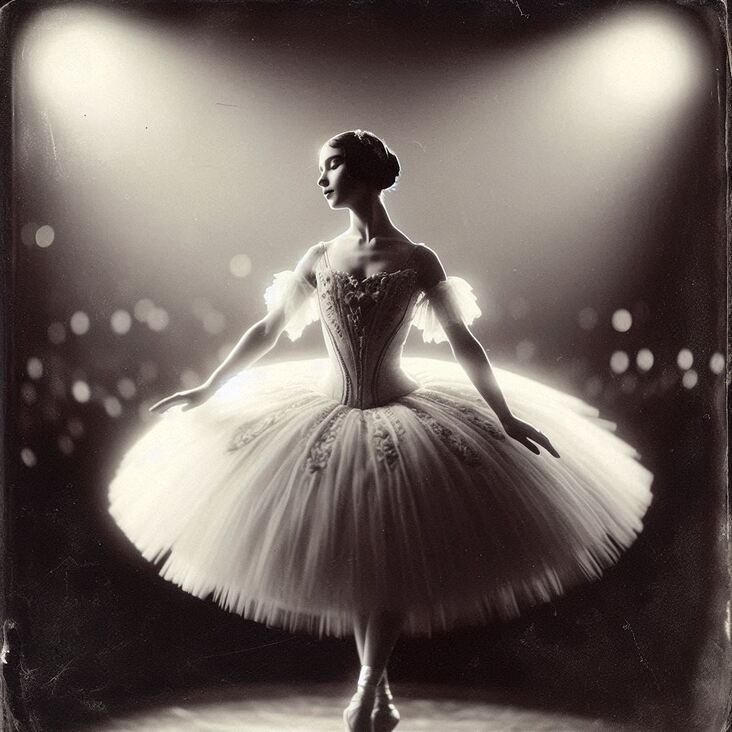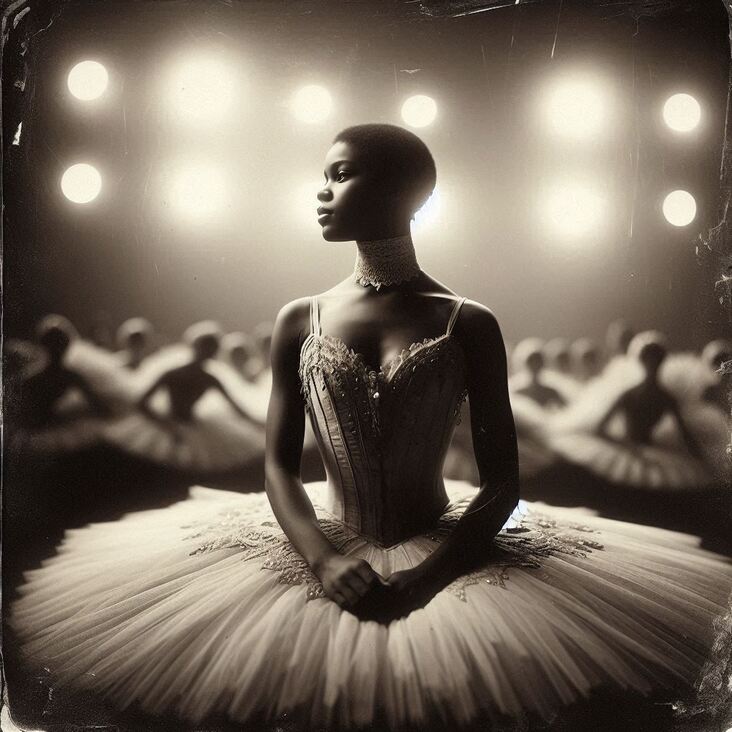
Hello my darlings! It’s Emma here, your tutu-loving time-travelling blogger, bringing you another dose of ballet history with #TutuTuesday, your weekly rendezvous with the fascinating world of tutús. This week we’re travelling back in time to November 17th, 1903. Buckle up your fancy footwear and prepare to be whisked away!
A Victorian World of Ballet
My time machine landed me smack-bang in the heart of London, with its elegant Victorian streets bustling with horse-drawn carriages and the air abuzz with excitement for the new century. It was quite a contrast to my Derbyshire village where the only rush was the chickens at lunchtime! But my mission remained the same - to understand and spread the beauty and wonder of tutús throughout the ages.
The Dance of a New Century
As I strolled down Piccadilly, the buzz of the latest theatrical productions was palpable. I popped into the Empire Theatre to see what was on offer, and, oh my, I was met with a kaleidoscope of dazzling costumes and talented performers! This was the heyday of variety theatres, where ballet, dance, and drama intertwined. I couldn't help but smile. Ballet was finding a new and vibrant expression in the new century.
The Evolution of the Tutu
And what about tutús, you ask? Well, let’s just say the tutú of 1903 was a world away from the romantic frills of today! Back then, dancers graced the stage in knee-length tutús with voluminous skirts, often constructed from several layers of silk or tulle. This style, designed by the likes of renowned fashion houses such as Worth and Redfern, was known for its luxurious and flowing form. Think flowing skirts and billowing layers - it’s all about evoking elegance and grace.
Inspiration from The Russian Ballet
My adventures led me to Covent Garden where I witnessed a truly captivating performance of Diaghilev’s Ballets Russes. This groundbreaking company, known for its innovative choreography and revolutionary designs, was about to revolutionize ballet aesthetics. The costumes, even the tutús, were bold, modern, and breathtaking! Just imagine a glimpse of the iconic “The Firebird,” a story about the power of fire and the transformative journey of a magical creature - all captured in an intricate dance that unfolded under the dazzling brilliance of shimmering costumes.
Pink: A Dream in Every Century
Of course, no trip to the theatre is complete without some fabulous shopping! And guess what colour ruled the day? It was pink, my darling! It was everywhere in the form of silk sashes, delicate lace collars, and, oh yes, even tutús! A pink tulle ballerina costume might have been unthinkable in my time, but in 1903, pink was the colour of romance, elegance, and femininity, so it's no surprise that it was also considered the perfect shade for a dancer. It embodied the essence of ballet – graceful, elegant, and, most importantly, full of whimsy and delight!
A Century of Tutus
Seeing ballet's rich history unfold before my eyes filled me with joy and wonder. I understand that the tutu is not just a piece of clothing but a powerful symbol of feminine strength, artistic expression, and endless creativity. Whether they were long or short, flowing or tight, the tutú of 1903 embodied a beauty that was timeless and inspiring. And that, my darlings, is why we wear them!
*And don’t forget… *
*#TutuTuesday will return next Tuesday with even more exciting adventures in ballet history. *
Until next time, stay stylish!
*Love, *
Emma
www.pink-tutu.com
PS: Let me know what YOU think! What is your favorite era for tutús? Which ones have captured your heart? I can’t wait to read all your comments below!

